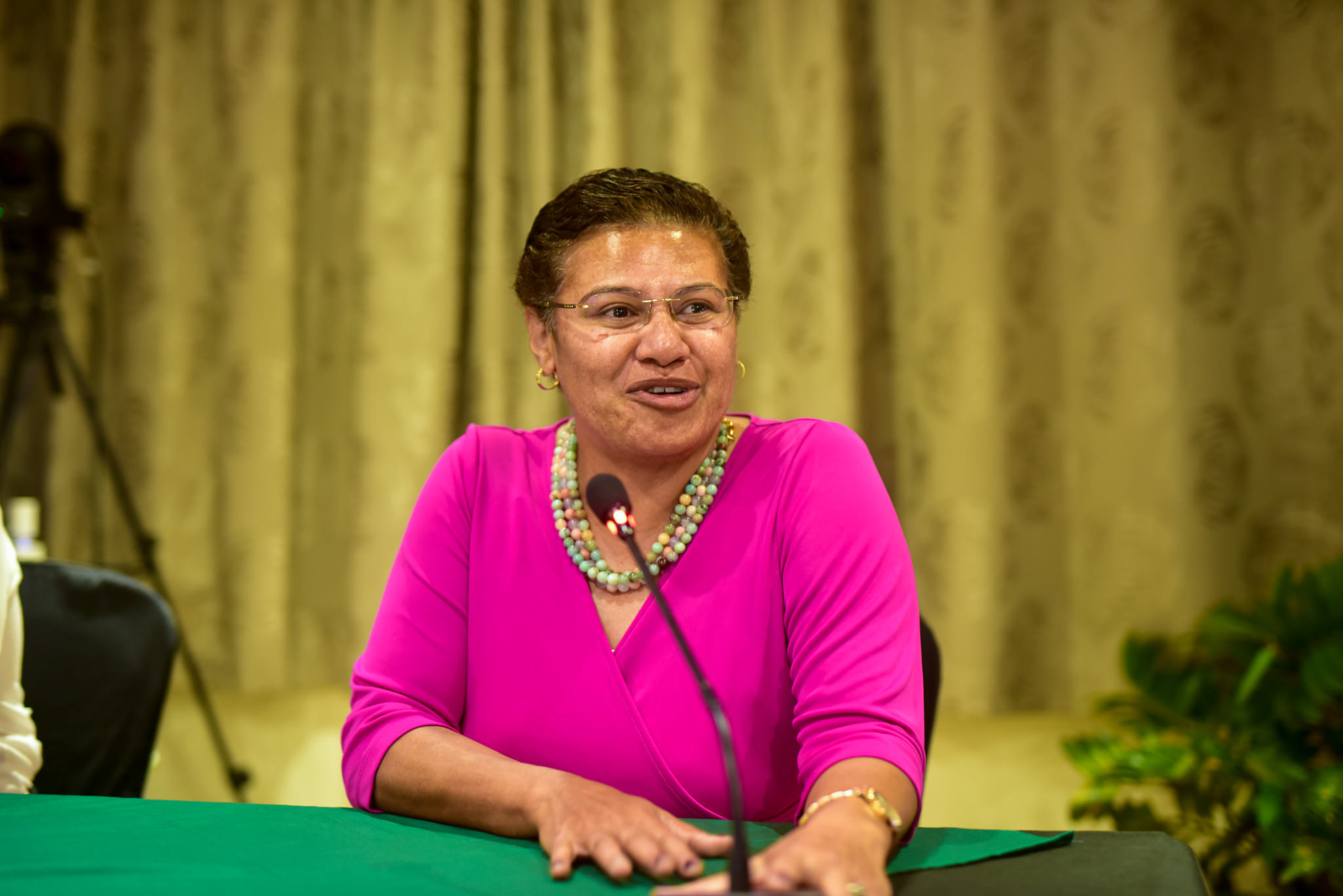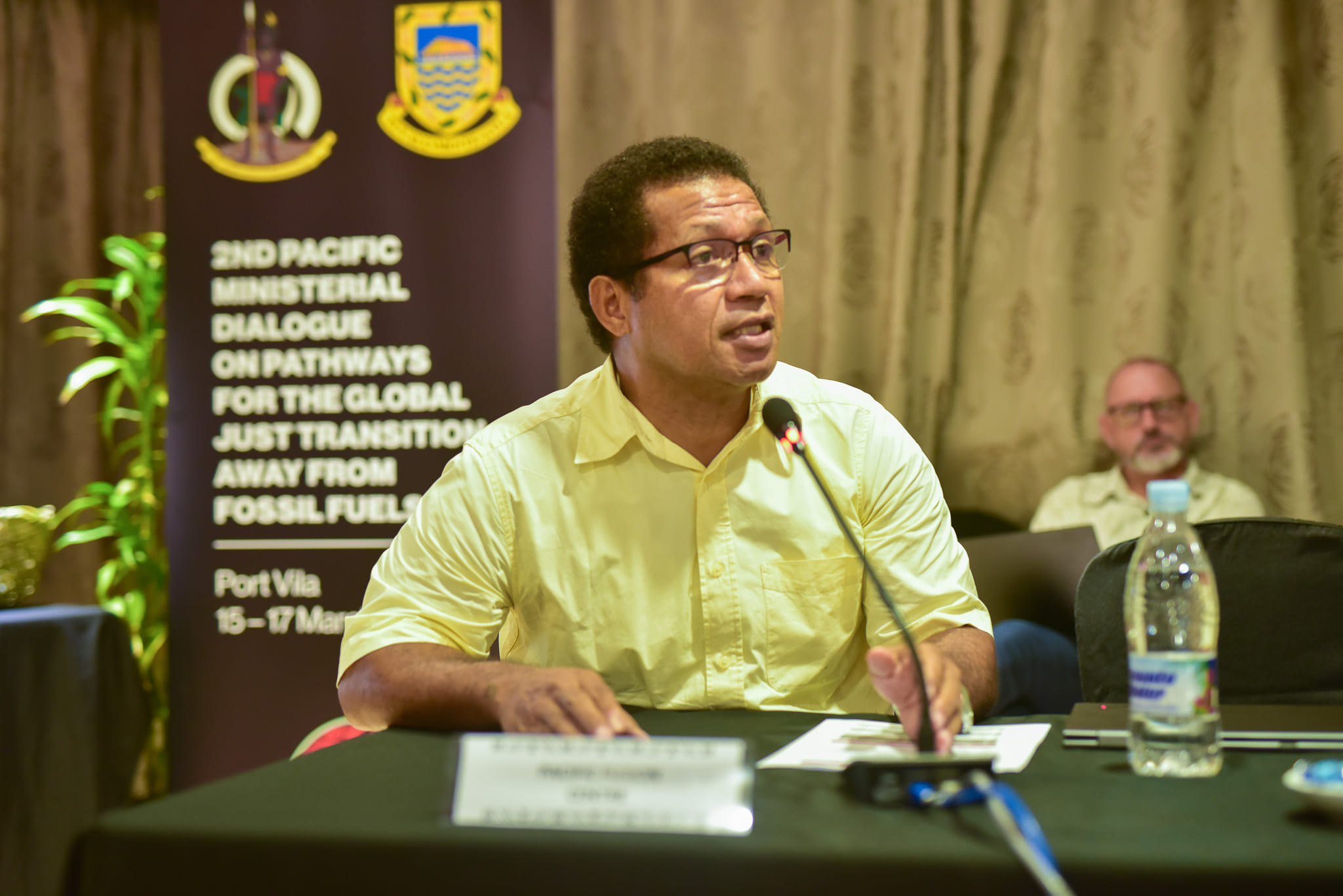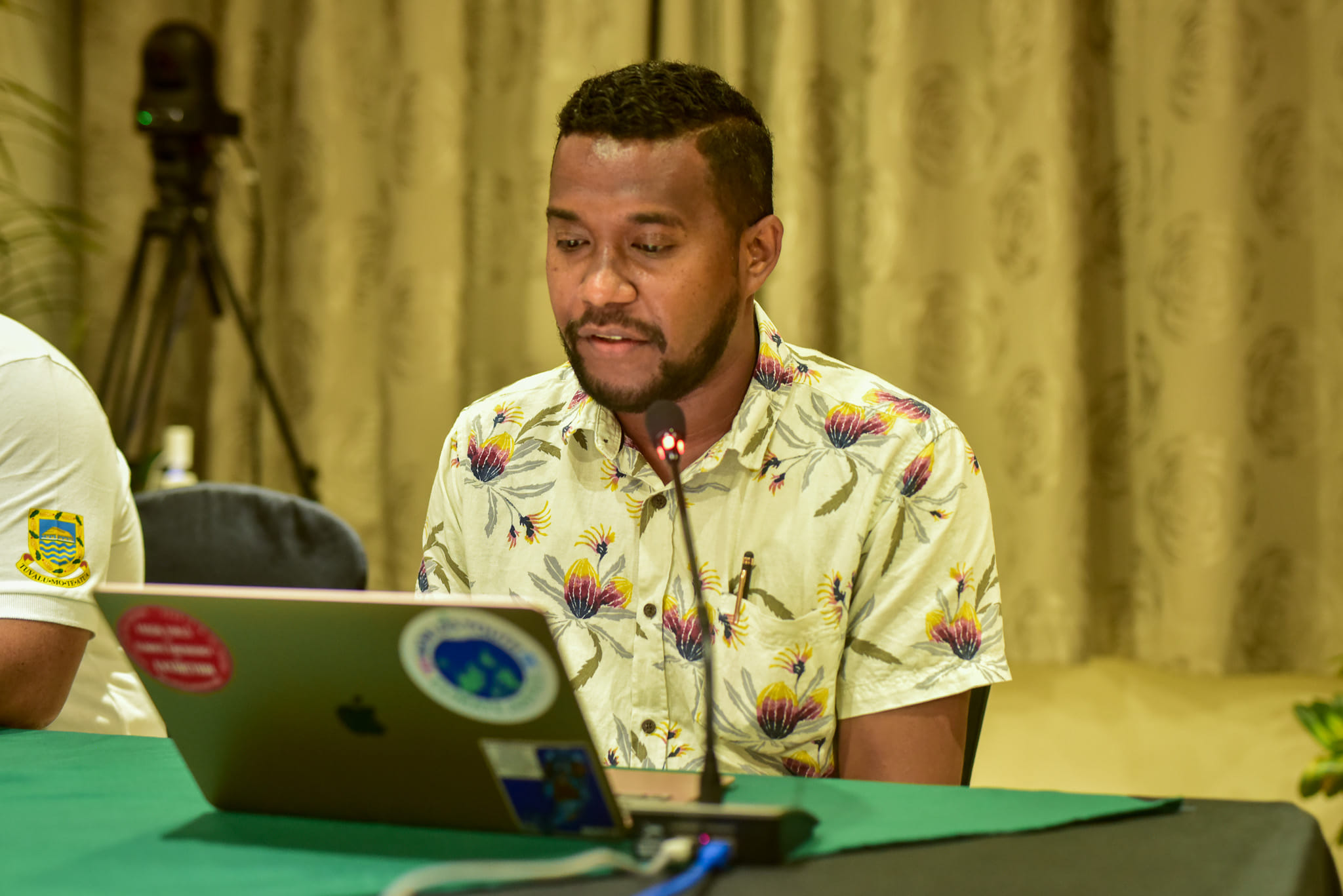Fiji’s Assistant Minister in the office of the Prime Minister Sakiusa Tubuna last week contributed to discussions at the 2nd Pacific Ministerial Dialogue on Pathways for the Global Just Transition Away from Fossil Fuels, where Government Ministers and officials heard from other Pacific leaders and civil society organisations (CSOs) about a global goal to limit average temperature rise to below 1.5 degrees Celsius.
Tubuna told the meeting that there are huge opportunities in solar and hydropower investments in Fiji, however the country’s national circumstances continue to erode the potential to accelerate the uptake of these clean energy technologies at scale.
“Transitioning away from fossil fuel-based energy technology is highly dependent on access to the technical capacity to assess, cost, and model alternative energy systems, high levels of capital investment to cover transitional costs, regulatory challenges that slow the potential for independent power producers to secure agreements to supply renewable energy, and a complexity of international actors involved in informing and supporting Fiji’s NDC achievement.”
Tubuna said many of Fiji’s objectives are also hampered by the high landed cost of new technologies and a lack of potential to introduce new low to zero emissions consumer goods such as electrical vehicles (EVs) due to lack of charging infrastructure and inability to achieve cost parity / competitiveness with existing mobility options.
Delegates attending the meeting in Port Vila also heard from three Fiji nationals who are experts in renewable energy, serving in different capacities in regional and international organisations.

Arieta Gonelevu Rakai is the Lead for the Small Islands Developing States (SIDS) Lighthouses Initiative (LHI) with the International Renewable Energy Agency (IRENA). The SIDS LHI is the framework for energy transition and climate action in small island developing states (SIDS).
Rakai has worked in the renewable and environment industry for a number of decades and one of her first jobs was energy analyst with the then Department of Energy in Fiji before joining the Pacific Community and IRENA. She holds a Master’s degree focused in Renewable Energy from Murdoch University and an Undergraduate Degree majoring in electrical and electronics engineering.
“Continuing such dialogues is imperative to the Pacific SIDS efforts to transition away from fossil fuels to renewables, coupled with energy efficiency measures. Such dialogues bring to light key issues such as financing, capacity and the enabling frameworks that are needed to be in place to facilitate the Pacific SIDS just transition efforts. The outcomes of such dialogues remind the international community of the Pacific SIDS priorities and to respond with tailored made solutions,” Rakai said.
“My work with the International Renewable Energy Agency (IRENA), leading the SIDS Lighthouses Initiative provides a platform for SIDS to tap into the appropriate technical assistance, analysis, tailor made capacity support and facilitating access to finance that is needed to realize their respective NDC commitments and SDGs.
The SIDS LHI, being a partnership framework of action and facilitated by IRENA is committed to working with all partners to support the SIDS in their energy transition efforts. The SIDS LHI also provides the platform for the SIDS agenda and voices to be amplified in the international fora.”

Akuila Tawake is the Deputy Director Geo-resources and Energy Programme at the Geoscience, Energy and Maritime (GEM) Division of SPC.
Tawake was previously Team Leader for the SPC-EU Deep Sea Minerals Project. Prior to this post, Akuila was the Senior Adviser – Aggregates Geology at the Geoscience Division (GSD) for more than seven years.
He is a member of the International Marine Minerals Society (IMMS) and the Fiji Mining and Quarrying Council, and the SPC regional correspondent for the InterRidge News. He also worked as an Exploration/Mine/Project Geologist at an operating mine and two other exploration projects in Fiji for a further seven years.
He has worked with stakeholders in the minerals/mining industry including governments, regional and international organisations, academic institutions, Private sector, NGOs, Communities and resource owners.
“SPC has three important roles in the just transition away from fossil fuel to renewables energy. One is we do the coordination and as the lead agency responsible for supporting the countries in their just transition away from fossil fuel so we do the coordination. For Example; the officials meeting and ministerial meeting that will be held in May, we are responsible for organizing that at the regional level and the coordination of those regional initiatives. Secondly we are also assisting the countries in the implementation of renewable energy projects.
“There is a very strong team from SPC present, not only one person but three of us from SPC, simply because we want a proper representation from SPC from climate change, energy and transport so that we have those three different sub-sectors represented here to reinforce the idea that we are supporting the countries in their just transition away from fossil fuels towards renewable energy or energy efficient initiatives in the Pacific. We are supporting the countries in energy transition to make sure that progressively they are going to move away from fossil fuel and adopt a renewable energy and energy efficient technologies.
I’m happy that we have included that in the Outcome Statement of this meeting,” Tawake said.

Lavetanalagi Seru is the Regional Policy Coordinator of the Pacific Islands Climate Action Network (PICAN), a network of over 160 civil society organisations in the Pacific that are working to build a climate-just and resilient people and communities.
We are present in Fiji, Kiribati, Solomon Islands, Tuvalu and Vanuatu, through our national nodes, and with a wider membership from civil societies across our Blue Pacific Continent.
“Every second of climate inaction and clinging to fossil fuel puts lives, homes, livelihoods, security and lobbying of the Pacific Island people and communities, but as a region we remain resilient and I think this Ministerial Dialogue is a reminder that despite the doom and gloom that another world is possible. A world that’s fossil fuel free and also that’s equitable and sustainable. I think this is a great opportunity to begin discussions around how just transition will look like in the Pacific context,” Lagi said.
SOURCE: FIJI GOVT/PACNEWS












